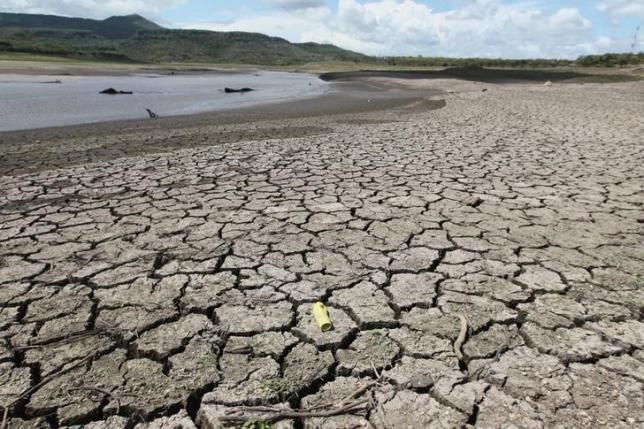
The Maharashtra government on Tuesay banned digging of borewell below 200 feet in view of the acute water crisis in the state.
Water Supply and Sanitation Minister Babanrao Lonikar said that any violation will invite action under the 'Maharashtra Groundwater Development and Management Act' where violators may face fine or even imprisonment.
"The Maharashtra Groundwater Development and Management Act has to be implemented strictly due to the severe drought conditions prevalent and the depleting water stock. We have spoken to all senior officials and decided to ban the digging of borewells below 200 feet," Lonikar said.
He said that with the amount of water being drawn out from the ground, it's imperative to control the digging of borewells. It will eventually help in averting drought-related problems, he added.
"While the Act will be implemented strictly, we require participation of the people. Everyone needs to come forward and help us save ground water," he said.
Meanwhile, Lonikar said 4,356 tankers are currently being supplied by the state government, out of which, 52 are for Konkan, 831 for Nashik, 303 for Pune, 3,032 for Aurangabad, 131 for Amravati and 7 tankers for Nagpur divisions.
"The government has sanctioned Rs 750 crore for water distribution, out of which Rs 500 crore has already been provided to district collectors. This money will be used for 17 different works like providing water tankers, changing of old pipelines, changing of burnt pumps, fixing of leakages in water tanks etc," Lonikar said.
According to an official of the Maharashtra Irrigation department, dams across the state have only 19 per cent water left compared to 32 per cent at this time last year.
In Marathwada, eight of the region's 11 major dams are at dead storage level, which means water from the reservoirs cannot flow out but has to be lifted. "It is down to only three per cent," the official said.
This is a drastic decline in water storage as at this time last year, water level in Marathwada's dams was much higher at 11 per cent, Aurangabad Divisional Commissioner Umakant Dangat told PTI.
"We will also use the groundwater stock and as the IMD forecast is good, we hope that we will be able to carry on till the monsoon arrives," he said.
"We have already cut water supply to (the) industry. The collectors and divisional commissioners have been instructed that use of water for drinking is the top priority," Maharashtra Water Resources Minister Girish Mahajan said.
As many as 2,745 water tankers are being used in the parched region compared to 939 at this time last year. Lonikar said 4,356 tankers are currently being supplied by the state government, out of which, 52 are for Konkan, 831 for Nashik, 303 for Pune, 3,032 for Aurangabad, 131 for Amravati and 7 tankers for Nagpur divisions.
"The government has sanctioned Rs 750 crore for water distribution, out of which Rs 500 crore has already been provided to district collectors. This money will be used for 17 different works like providing water tankers, changing of old pipelines, changing of burnt pumps, fixing of leakages in water tanks etc," he said.
The worst-affected Latur in Marathwada has been getting supply by a special "water train" filled at Miraj in western Maharashtra. The Aurangabad Collector has already announced a 20 per cent water cut to local breweries and a 10 per cent overall cut to local industry.
This is the fourth year of drought in Marathwada in the past five years. Each of its 8,522 villages have been affected for two consecutive years.











 © 2025
© 2025